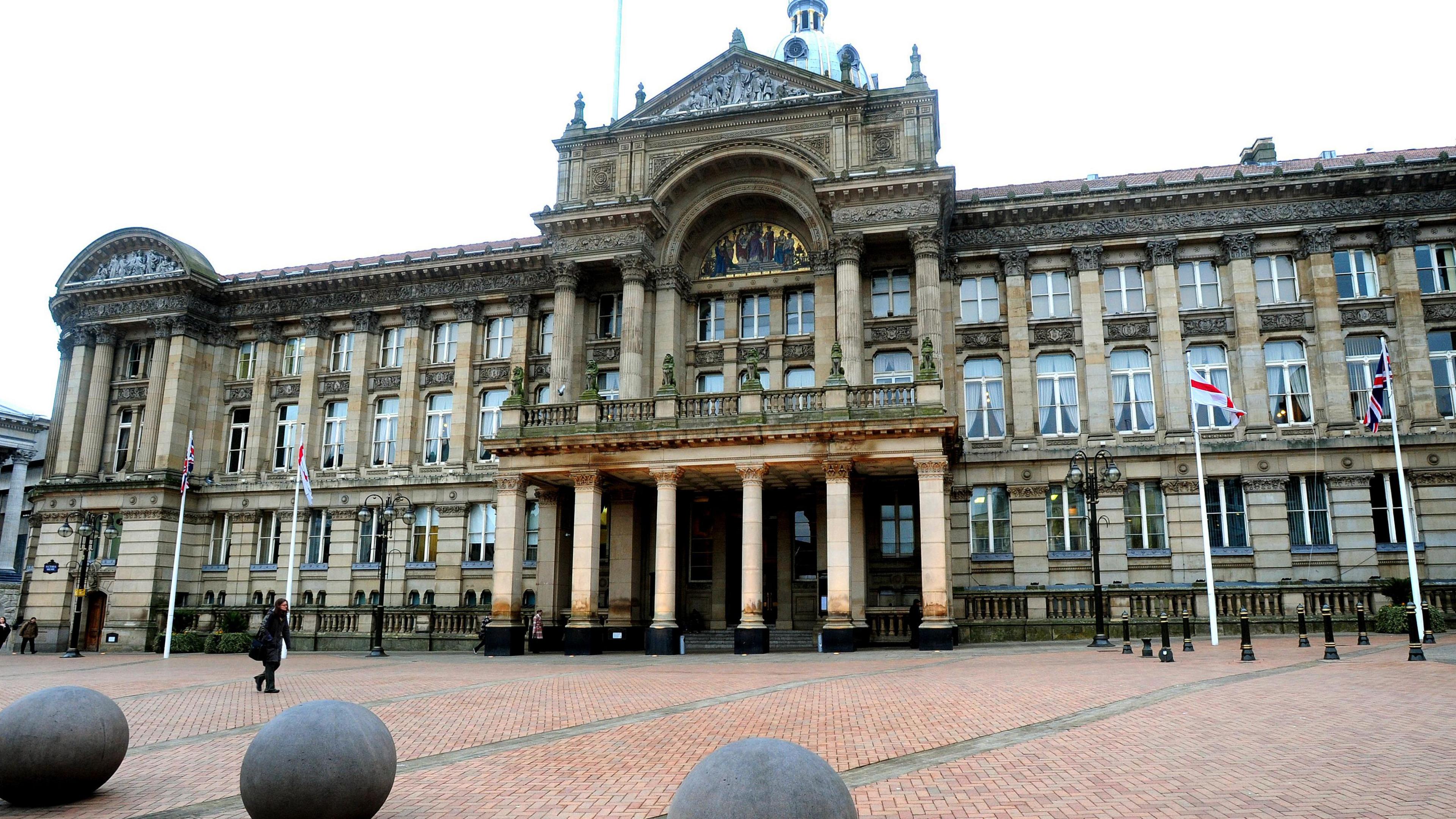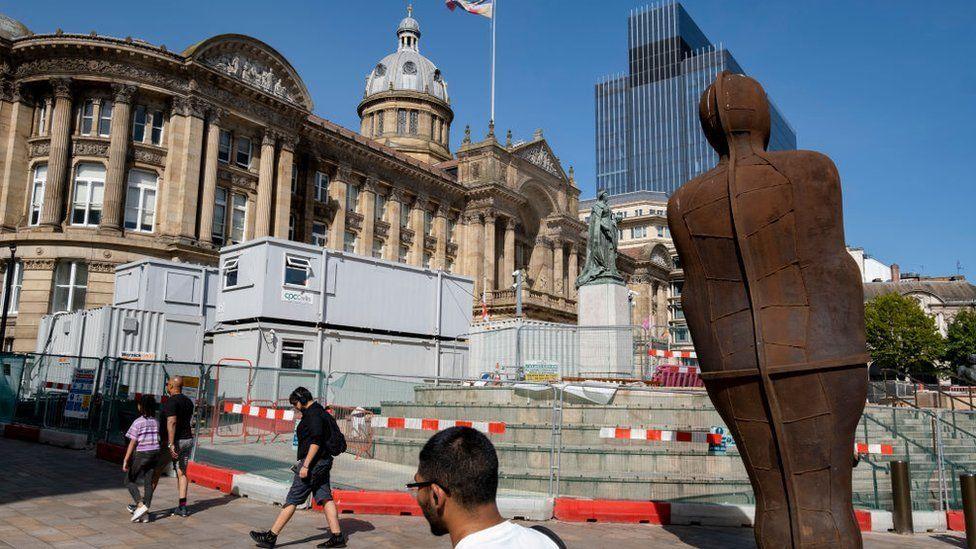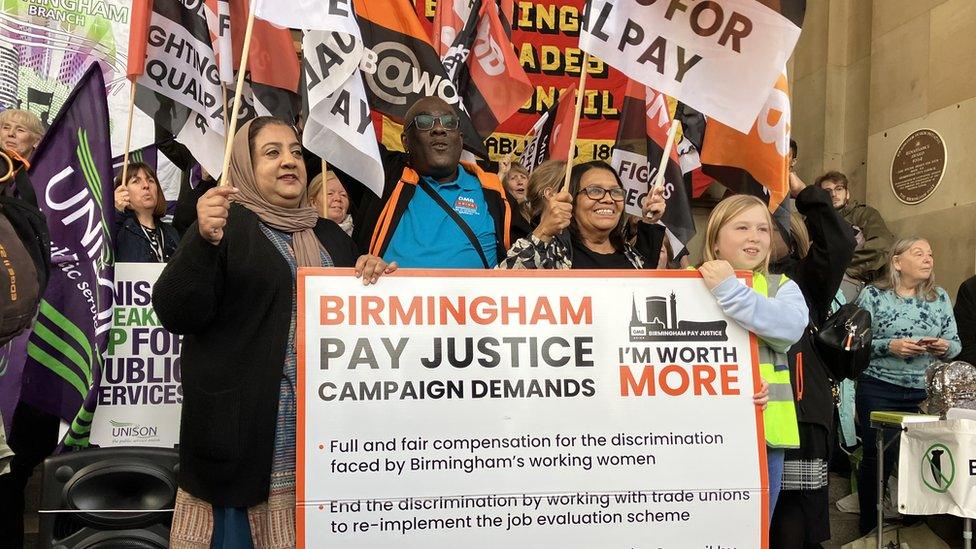'Deep-seated blame culture' at Birmingham City Council

Birmingham City Council declared itself effectively bankrupt in September
- Published
Birmingham City Council’s financial crisis was worsened by a “deep-seated blame culture” and “low levels of trust” between councillors and the authority's officers, according to an independent report.
The 35-page review said there was no specific root cause of the failures.
However there was a tendency to try to “minimise bad news”, it added.
The council declared itself effectively bankrupt in September amid equal pay claims of up to £760m and an £80m overspend on an IT system.
The report's recommendations include prioritising services to residents and changing the behaviour of councillors and officers.
The review was carried out for the city council, after a request from the government, by the Centre for Governance and Scrutiny.
It aimed to provide a broad overview of what went on in the run-up to Birmingham’s financial struggles.

Birmingham City Council's problems "have not been caused by any single issue", the report said
As well as the bill to settle equal pay claims, increasing by £5m to £14m each month, the authority committed more than £46m to fix issues with its HR and payment system Oracle.
They included the council not knowing exactly how many people it employs and where they fit into the organisation.
In November, a council review revealed it faced a £165m budget deficit in the next financial year and a need to find savings of £35m the year after.
Commissioners were sent in by the government to help run the authority after the extent of its financial crisis was made public.
The Labour leader of the authority, John Cotton, told the BBC there would not be a fire sale of assets but "everything was on the table", as it looked at its budget and savings.
'Difficult to speak up about bad news'
Published on the council’s website, external, the report suggested “Birmingham’s current governance, and financial challenges have not been caused by any single issue.”
It said 10 years of funding cuts have caused issues but: “The council’s size, the failure to effectively implement Oracle, its lack of awareness of its equal pay liabilities, and its hosting of the Commonwealth Games are all relevant considerations – but no specific one of these present a root cause of failure.”
Problems with how the council was being run included low levels of trust between staff and elected councillors, a deep-seated blame culture and people working in silos or as individuals rather than one big organisation.
Investigators also reported “a defensive culture where there is difficulty in speaking up about bad news” and said there was also a tendency to try to “minimise bad news”.
Councillors were also found to have restrained officers’ freedom to carry out operational duties by “heavy direction and oversight”.
The council was also accused of having an “optimism bias” with a habit of promising things which could not realistically be delivered.
The report recognised some positive changes have already been introduced but concluded “current actions may not be sufficient to address the significant challenges facing the council.”
Recommendations from the report are due to be signed off by the council’s cabinet on 12 December.
Related topics
- Published10 October 2023

- Published30 November 2023

- Published6 November 2023

- Published17 September 2023
